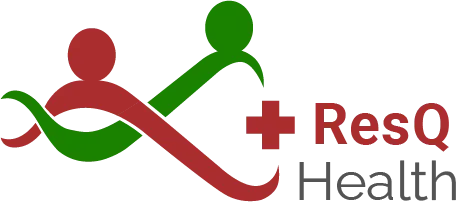
Adapting Training Programs to Meet Diverse Learning Styles
Everyone learns differently, and that's what makes designing a training program so exciting. Whether you're showing pictures, playing sounds, or encouraging hands-on activities, there are countless ways to engage learners. Understanding these diverse learning styles helps trainers create better experiences that match how people learn best.
Creating training that fits different learning styles is like crafting a puzzle. Every piece matters, and when they fit together, something amazing happens. Showing information in various ways helps each learner grasp concepts in a manner that feels just right for them. This personalized approach can unlock better learning and make the training journey more enjoyable.
When training programs consider different learning styles, everyone gets a fair chance to shine. It means that each learner can access the tools and methods that help them understand and remember information. As trainers explore these adaptive teaching methods, they not only enhance engagement but also make learning a truly rewarding experience for all.
Understanding Diverse Learning Styles
People absorb information in ways that feel most intuitive to them. These different approaches are called learning styles, and they include visual, auditory, kinesthetic, and more. Visual learners thrive when they can see pictures, diagrams, or charts. Auditory learners, on the other hand, grasp information better when they can listen to it, such as through lectures or discussions. Kinesthetic learners need to move around and use their hands to truly understand new concepts.
Recognizing these differences in how people learn is crucial. When trainers take these styles into account, they can create lessons that reach everyone in the audience. This understanding helps in designing a more inclusive training program that can meet the needs of all learners, ensuring nobody is left behind or feels out of place.
The impact of acknowledging diverse learning styles in training is significant. When learners engage with material in a way that leverages their strengths, they tend to enjoy the learning process more. This leads to better retention of information and a greater sense of achievement. By catering to different learning styles, trainers can deliver more successful and effective training outcomes.
Designing Flexible Training Content
Flexible training content is essential for engaging diverse learners. To begin with, trainers can adopt various strategies to cater to different learning styles. This involves crafting a mix of content that is both visual and auditory, as well as incorporating physical activities to suit kinesthetic learners. This blend guarantees that all learners find something that resonates with them.
Incorporating multimedia elements transforms training sessions into more dynamic experiences. Videos, podcasts, and interactive slides appeal to visual and auditory learners, making it easier for them to absorb information. Trainers can use graphics or short films in their presentations, while also providing audio tracks or discussion forums to enhance understanding for all learners.
To further enhance learning, making content interactive and engaging is key. Quizzes, interactive simulations, and hands-on projects give learners the chance to practice what they’ve learned in a fun, engaging way. Interactive tools allow learners to explore and apply concepts at their own pace, fostering deeper understanding. Creating diverse training content ensures everyone has a fun and rewarding learning journey.
Implementing Adaptive Teaching Methods
Adaptive teaching methods are essential when aiming to accommodate diverse learning styles. One effective technique is to vary instructional approaches. Trainers can mix lectures with interactive discussions, group activities, and individual tasks. This diversity keeps learners engaged and caters to different preferences, making it possible for everyone to connect with the material in their own way.
Using technology to personalize learning experiences enhances the capability of trainers to meet individual needs. Online platforms, educational apps, and learning management systems allow trainers to tailor lessons to certain skills and preferences. Personalized quizzes, adaptive learning paths, and virtual simulations are just a few examples of how technology aids in crafting a customized learning journey.
Encouraging peer learning and collaboration also adds a dynamic component to training programs. Group projects and collaborative tasks foster teamwork and exchange of ideas among learners. This interaction not only helps learners with different styles but also builds a supportive learning community where everyone can benefit from shared knowledge and experiences.
Evaluating the Effectiveness of Adaptive Training Programs
To ensure that adaptive training programs are successful, evaluating their effectiveness is crucial. Gathering feedback from participants helps trainers understand what works well and what needs improvement. Surveys, questionnaires, and informal discussions are simple methods to collect valuable insights from learners.
Using assessment tools to gauge success provides concrete evidence of the program's impact. Quizzes, tests, and practical evaluations help measure learning outcomes and achievement levels. These assessments can highlight areas where learners excel, as well as those that might require additional support or adjustment.
Continuous improvement based on feedback and outcomes is key to refining training programs. Regularly analyzing feedback and assessment results allows trainers to make necessary tweaks to the program. This ongoing process ensures that the training remains effective, relevant, and engaging for all types of learners.
Conclusion
Creating training programs that adapt to different learning styles helps craft a more inclusive educational experience. By understanding and implementing various teaching techniques, trainers ensure that all learners have the chance to succeed. Designing flexible content and using adaptive methods make training sessions enjoyable and effective for everyone involved.
Ready to take your training programs to the next level? Let ResQ Health help you tailor your instructional approach to meet diverse learning styles. With our comprehensive class management platform, you can easily manage scheduling and collect feedback all in one place. Enhance your training success with us today!


Building healthy communities through the power of rescue training!
Quick Links
Our Solutions
Office
276 Newport Road, Suite 205
New London, NH 03257
Days Open
Monday - Friday
9 AM - 5 PM
